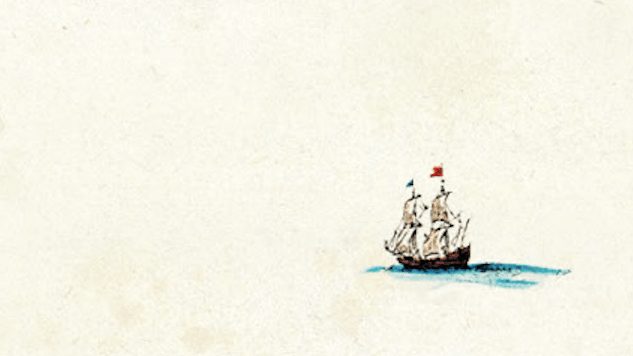Tom Feiling’s The Island That Disappeared Demonstrates the Necessity of Messy History
Books Features tom feiling
Europeans viewed the New World as a shining place across the fearsome sea—a place wherein they could worship as they saw fit, discover treasure and, most importantly, subjugate the land and the people they found there. So they came. The Spanish, Portuguese in tow, bearing disease and war dogs; the French, the English, the Dutch, desiring colonial economies of their own and to prey on the ships of the Spanish; private citizens, usually either wealthy or desperate or both, with machinations of money and future utopias. The Puritans were among this last class, the very same that sailed the Mayflower to the beginning of Popular American History.
But there was another group, one that sailed a decade after Plymouth in the sister ship the Seaflower. They landed on an island in the Western Caribbean, and dubbed their new colony—what else?—Providence.
 Tom Feiling traces the history of this island—of the Caribbean and, in a microcosm, the New World—in The Island That Disappeared. Thoroughly researched and rollicking, Feiling’s Providence suffers numerous metamorphoses over the centuries, from bare island providing safety, shelter and victuals to sailors, to Puritan colony, to Spanish garrison outpost, to privateer and pirate stronghold, to more colonies, flags, peoples, exports, up until its modern incarnation as a remote, English-speaking department of Colombia.
Tom Feiling traces the history of this island—of the Caribbean and, in a microcosm, the New World—in The Island That Disappeared. Thoroughly researched and rollicking, Feiling’s Providence suffers numerous metamorphoses over the centuries, from bare island providing safety, shelter and victuals to sailors, to Puritan colony, to Spanish garrison outpost, to privateer and pirate stronghold, to more colonies, flags, peoples, exports, up until its modern incarnation as a remote, English-speaking department of Colombia.
The Island That Disappeared is sprawling, necessitating a scorecard to keep track of who remains in control. The island’s history proves messy and violent; the New World’s history more so. This is not the streamlined creation myth of primary education and American animated cartoons; this is history-as-reality…as well as Feiling could ascertain. It’s a gory, meat-grinding process of which Feiling details all.
This is the primary importance of Providence. In exploring a colony romantic in its origins—Puritans living under the auspices of God! England carving out a foothold against the mighty, cruel Spanish! Living together with the Miskito Indians, scraping a living from the very frothy tips of the sea!—Feiling reveals how it came to be coated in the bloody patina that served as the modern incarnation’s foundation. In demonstrating the motives and motivations, the triumphs and tragedies, Feiling unspools the myth of the New World and ignites a righteous curiosity for a truer vision of our past.
History is messy, maddening and fascinating in equal measure, epic, evil and necessary to know. Pirates, Puritans, buccaneers, soldiers, sailors, Catholics, Protestants, slaves, slave owners, blood, silver, sugar, rum—the New World was built on plunder and plague. It was built by slaves and criminals and indentured servants, victims of devastation economic, political, martial and moral.
It has been prone to brutal upheaval and capital-driven myopia ever since.
B. David Zarley is a freelance journalist, essayist and book/art critic based in Chicago. A former book critic for The Myrtle Beach Sun News, he is a contributing reporter to A Beautiful Perspective and has been seen in The Atlantic, Hazlitt, Jezebel, Chicago, Sports Illustrated, VICE Sports, Creators, Sports on Earth and New American Paintings, among numerous other publications. You can find him on Twitter or at his website.